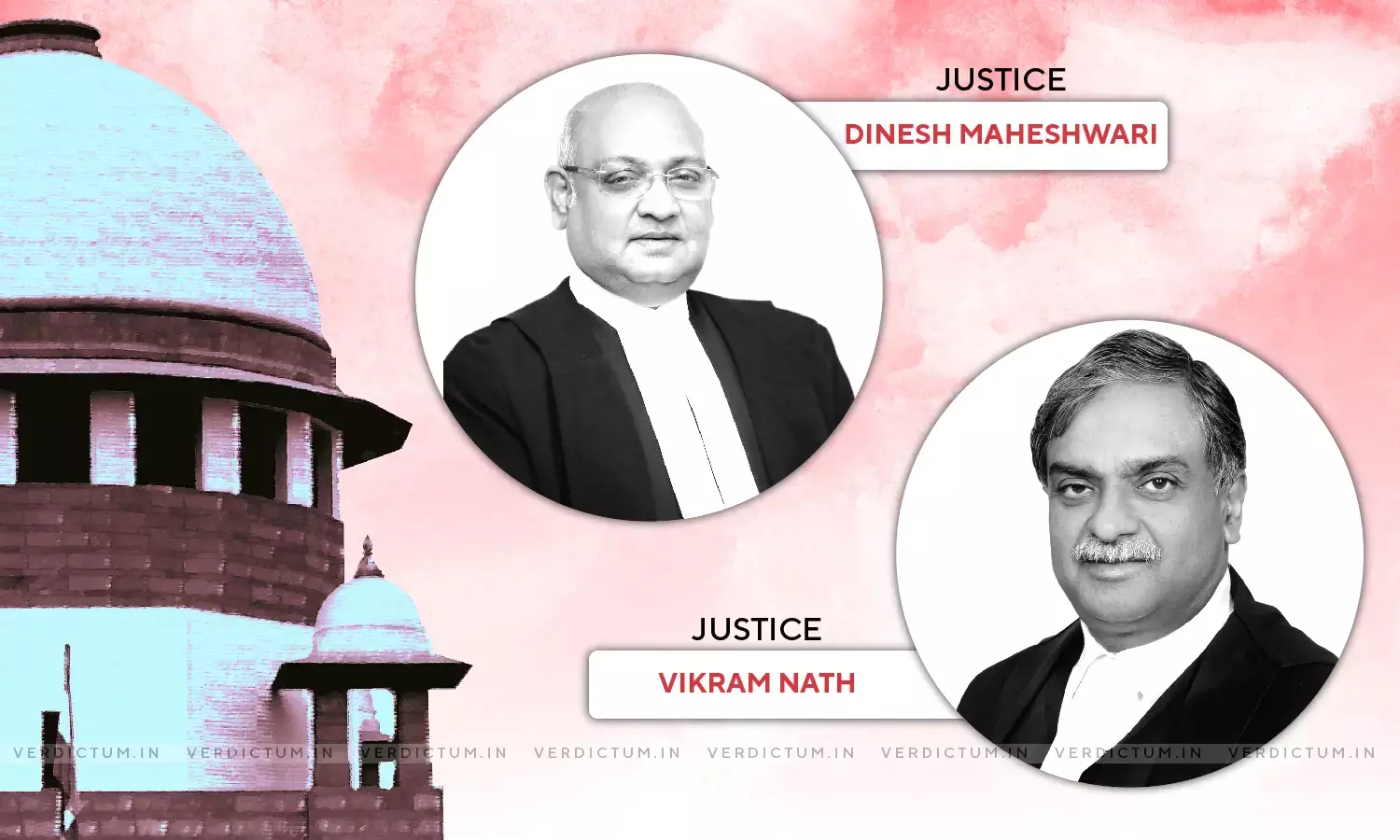Market Value Does Not Become Decisive For Suit Valuation Merely Because Subject Matter Involves Immovable Property - SC

A Supreme Court Bench of Justice Dinesh Maheshwari and Justice Vikram Nath heard an Appeal assailing an order of the Delhi High Court, with regard to market value and suit valuation.
The Bench held, "It remains trite that it is the nature of relief claimed in the plaint which is decisive of the question of suit valuation. As a necessary corollary, the market value does not become decisive of suit valuation merely because an immovable property is the subject-matter of litigation. The market value of the immovable property involved in the litigation might have its relevance depending on the nature of relief claimed but, ultimately, the valuation of any particular suit has to be decided primarily with reference to the relief/reliefs claimed."
The Plaintiff had filed the suit for mandatory and prohibitory injunction and recovery of damages. He claimed that he was the owner of a property he had purchased in 1981. The Plaintiff raised three-rooms tin shed on the plot in 1983-84 and since the plot was utilised, the Defendant No. 1 (elder brother of the Plaintiff), made a request for using the plot for storage purposes for his business as a contractor. Accordingly, Defendant No. 1 was admitted as a gratuitous licensee at will on the plot. In 1989-90l, Defendant No. 1 approached the Plaintiff with a request to permit Defendant No. 2 – who was working as a Munshi with Defendant No. 1 - to reside in two rooms of the tin shed, till such time when the plaintiff himself would require the same, and the Plaintiff allowed the same and Defendant No. 2 was also admitted as a gratuitous licensee at will.
Later on, when the Plaintiff planned to raise construction and asked the Defendants to remove themselves and their belongings from the plot, they did not do so. Defendant No. 2 himself had built and acquired his own double-story house opposite to the plot in question and yet did not remove himself with his belongings from the plot in question. Defendant No. 1 had stopped working as contractor since the year 2005 and did not require the plot any more but, he also did not remove himself with his building material despite repeated assurances.
The Plaintiff served legal notices in 2016, asking the Defendants to remove themselves from the property, and also to give damages for unauthorised use and occupation of the plot. However, when he visited the plot, the Defendants were found planning to raise construction on the plot in question and to create third party rights so as to defeat the legal rights of the Plaintiff.
Suspecting foul play, the Plaintiff filed the suit.
Defendant No. 2 alleged before the Court that the plot did not belong to the Plaintiff and the suit was instituted on the basis of forged documents, with the intention to grab the property.
Defendant No. 2 also filed an application under Order VII Rule 11, stating that the value of the property at the time of filing of the suit as admitted by the Appellant reflected the fact that the Trial Court did not have the jurisdiction to adjudicate the suit. This application was rejected, and then assailed before the High Court.
The High Court found that the valuation of the suit for the purpose of Court Fees and jurisdiction at Rs 250 for each of the reliefs of injunction is wholly arbitrary. It directed that the plaint should be returned to be filed before the appropriate court.
The Plaintiff approached the Supreme Court.
The Supreme Court noted that the valuation of the suit is dependent on the nature of the relief claimed. It further opined that simply because the matter involved an immovable property, the market value would not become decisive of the suit valuation.
The Court took cognisance of the fact that the Petitioner had valued the suit for the purpose of Court fees and jurisdiction at Rs 250 for each of the reliefs for injunction and Rs 1,00,000 for damages, and paid the Court fees accordingly.
The Supreme Court opined that the High Court had erred in not considering the applicable provision of law. To that end, the Court held that "we may simply put the upshot in other words that the High Court has totally omitted to consider the applicable provision of law i.e., Section 7(iv)(d) of the Court Fees Act as also the principles of law stated in the very same decision being referred to and relied upon in the impugned order itself."
Thus, the impugned order was set aside.
Click here to read/download the Judgment

